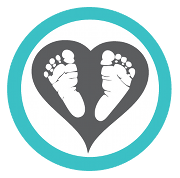
Sometimes Daylight Savings Time change days are good ticklers that it is time to check out some safety features in your home and prepare for a safe winter as the season changes. Anything regular event like this can remind you of some of those nagging, but important little chores. Here are a few suggestions appropriate for this time of year:

- Change the batteries in your smoke alarms and carbon monoxide detectors. And, consider replacing older units to be sure you are always safe. A smoke alarm should probably be replaced when it's ten years old; carbon monoxide detectors at five years. Smoke alarms should be positioned near bedrooms and on each floor of the house.

- Check your emergency storage and preparedness kits. I know someone who eats the food stored in the emergency kits and replaces with fresh at this time. In addition to preventing things from becoming stale, it is a good reminder of what might be missing to make it palatable if it's ever needed. Be prepared for power outages or other disasters.

- Change your furnace filters and/or have your furnace checked for safety.

- Detach outside hoses to prevent freezing of pipes when it gets really cold.

- Check your car for emergency supplies in the trunk in case you are stranded in the winter, make sure tires are good with ready spare, antifreeze is in the radiator, and jumper cables are handy. Auto parts stores will check out your battery at no charge. Carry warm outerwear in the car even if it's not needed while the kids are in their car seats. If you have to get out and walk somewhere, you can't rely on your car heater to take care of you and your little ones. Make sure you have loaded the snow scraper. Keep antifreeze away from children and pets and keep the tank full.

- Use only safe space heaters that won't burn children, tip and cause fires, etc. And don't leave them on when you leave the home. Keep space heaters at least three feet from anything burnable - clothing, blankets, draperies, etc. Don't use them for clothing dryers, even for wet gloves and jackets. Non-electric (i.e. kerosene) need special precautions. Follow manufacturer directions and refuel outside, ventilate properly, and keep away from children - never leave a child unattended in a room where a space heater is used.

- Find the snow shovel before you need it and use de-icer on slippery surfaces.

- Don't overheat the baby. Blankets, quilts, pillows, sheepskins, loose bedding may contribute to SIDS. Babies are safest sleeping in blanket sleepers or sleep sacks (brands like Circo by Target and Halo). Any blankets used should be at the chest level; not by the face and preferably tucked in.
- Don't be tempted to use your range to heat your home, even briefly.

- If you burn in a fireplace, make sure the chimney and flu are cleaned regularly.

- Don't burn candles when children are in the house. They're pretty and also very attractive to little ones who do not understand fire dangers.

 Sometimes Daylight Savings Time change days are good ticklers that it is time to check out some safety features in your home and prepare for a safe winter as the season changes. Anything regular event like this can remind you of some of those nagging, but important little chores. Here are a few suggestions appropriate for this time of year:
Sometimes Daylight Savings Time change days are good ticklers that it is time to check out some safety features in your home and prepare for a safe winter as the season changes. Anything regular event like this can remind you of some of those nagging, but important little chores. Here are a few suggestions appropriate for this time of year:
































No comments:
Post a Comment
This blog only reviews comments before posting to avoid hijacking. We will respond to comments Mon-Thurs but we are closed Fri-Sun and legal holidays.